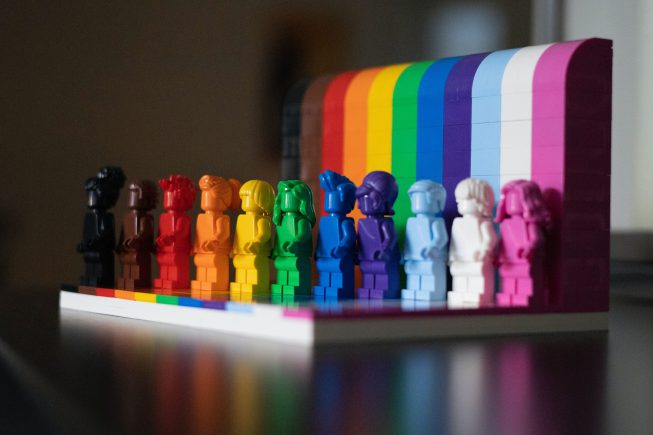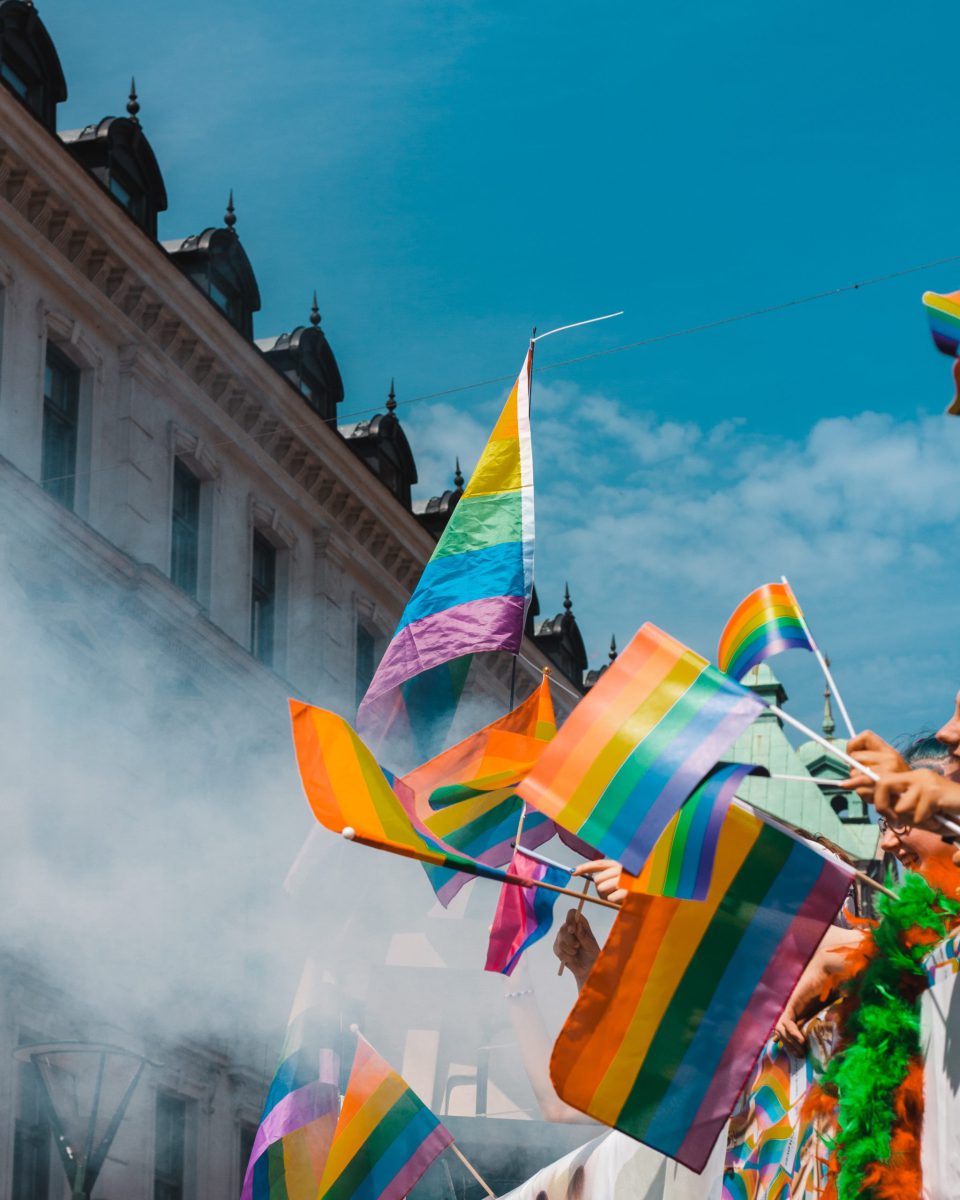PRIDE: In celebration & reflection

June has arrived, the vibrations of Pride month are in the air, and the launch of summer is just around the corner. June has always been my favorite month, selfishly because it’s my birth month, and now in my adult years, it’s a time for me to celebrate with my community in genuine authenticity and expression.
Pride represents a prime time for people of the LGBTQ+ community. There’s a lot of celebration, partying, parading, marching, togetherness, momentum, and remembrance. It represents a moment where we can find color and light in some of our dullest and darkest experiences as queer people. It represents a collective sigh of relief, a time to let go – to dance it out, be loud, and be expressive in whatever way feels right.
And while Pride is always festive and exciting, it’s so essential for those in our community and beyond to recognize the people who have gotten us this far, the loss our communities faced in the process, and the reality of our current moment and where we stand as people in the public and political eye.
I recognize and lift the contributions and leadership of Black and Brown trans women like Marsha P. Johnson, Sylvia Rivera, and Miss Major Griffin-Gracy, who led the riots at Stonewall and did so much more in the aftermath. I recognize the lives and contributions of those our community lost during the AIDS epidemic and the failed system that made it so. I acknowledge the experience of the millions of queer children across the country right now watching politicians play chess with their rights. I recognize the targeted physical violence and murder of trans and gender non-conforming people that happens disproportionately and the 57 trans lives we lost to senseless violence last year. I am grateful, mourning, and angry through all of my celebrations this month.
There is a lot of pain, grief, and hardship in the queer experience. Every queer person grows up thinking that they are somehow different from their peers. There’s a reason that suicide rates for queer children are some of the highest across any demographic or age group in this country. According to the Trevor Project, queer children experience some of the highest incidences of trauma both at school and at home. They often struggle to accept and respect their identities from classmates and their families. Trans and queer youth experience some of the highest rates of suicidality, homelessness, violence, and bullying – and when Black and Brown trans and queer youth experience this trauma compounded by systemic and institutionalized racism, the barriers to educational success, and emotional wellbeing multiply.

Since 2022, an unprecedented avalanche of anti-LGBTQ+ bills has been moving through state legislatures across the country. The American Civil Liberties Union (ACLU) has tracked anti-LGBTQ+ bills introduced in state legislatures since 2018. According to its data, states filed 238 anti-LGBTQ+ bills in the first three months of 2022. The bills in the current state legislative sessions across the country include issues such as: restricting access to healthcare for transgender youth, single-sex facility restrictions, excluding transgender youth from athletics, and other school or curriculum restrictions. According to the ACLU, more than 140 anti-LGBTQ bills have been introduced in state legislatures that impact queer children – 92% of which are still active.
These sorts of legislative moves to hinder and restrict the freedoms and wellbeing of queer students perpetuate trauma and create stress that dramatically impedes a child’s ability to learn. According to a Trevor Project’s 2022 survey, 93% of transgender youth reported that they worried about transgender people being denied access to gender-affirming medical care due to state or local laws. Moves like those in Texas send a clear signal to trans students that their identities are not recognized and that their elected officials do not support them.
At New Profit and America Forward, we know that students succeed when they feel safe, secure, affirmed, and supported. A welcoming and supportive school climate, strong relationships with peers and trusted adults, and freedom from fear are as crucial to learning and development as well-trained educators and a curriculum grounded in science. In fact, safe and welcoming school environments and healthy developmental relationships are the foundation upon which practical and enduring learning occurs.
Ensuring that every individual learner, from early childhood to post-secondary, thrives in school requires an education system that promotes safe, healthy environments that set the table for learning and give students the ability to overcome challenges they experience. Achieving that vision requires aligning federal, state, and local policies, resources, and tools.
To accomplish this, we must expand the adoption of evidence-based practices to improve the school climate and ensure students feel the safety and security necessary for learning to occur.
- Embedding priorities for the creation of safe and healthy school climates and strong developmental relationships across funding streams;
- Connecting schools, districts, and states with high-quality partners working on innovative strategies to improve school safety;
- Incorporating effective, evidence-based measures of school safety and climate into accountability frameworks; and,
- We are providing sufficient funding for trauma-informed practices and mental health supports, like those in America Forward’s RENEW Act, total service schools, after-school programs, and many mental health professionals in our schools.
As long as state legislatures strip educators of the tools and ability to affirm queer students and make them feel accepted and safe, queer children will continue to slip through the cracks in devastating ways. They will face higher barriers to success in the classroom, continue to attempt and die by suicide at the highest rates among their peers, and face undue trauma that produces adverse effects later in their lives. We must and can do better as a nation.
Resources:
If you or a loved one are struggling with your mental health, please visit https://www.thetrevorproject.org/get-help/ or call 1-866-488-7386 (Trevor Project Crisis Hotline) or 1-800-273-8255 (National Suicide Prevention Lifeline).
To read more about the Trevor Project’s 2021 National Survey, visit https://www.thetrevorproject.org/survey-2021.